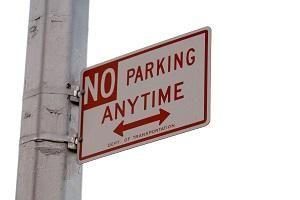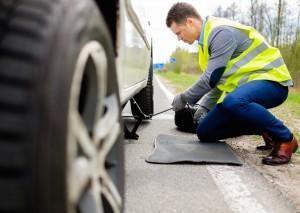Wen Injuries occur the obvious answer is speed management 30 K should be the maximum speed where cars cyclists and pedestrians mix but there are more tools than speed limits how we train drivers inverse rules and design roads roundabouts force drivers to slow down for instance they also have fewer points flict and make collisions at dangerous angles almost impossible there is now ample evidence to show but a reduction of just 1% in the average speeds of vehicles lead to a reduction of 4% of in the number of fatal crashes 33% of a scooter crashes end with head injuries twice as many as with bicycles according to a recent US study the bicycle has long been a favorite for shorter trips recently electric bikes scooters and also more exotic devices have become hugely popular are they the future of urban mobility or safety risks on wheels innovations in micro mobility may bring new crash risks but if we understand those risks we can counter them 8 out of 10 fatal crashes with micro vehicles involve cars so micro mobility requires protection its own protected Street space or traffic calming where all vehicles must sharethe space street design must also serve the safety of do's using micro vehicles if we can make it safe micro mobility rhymes with opportunity that of shaping a sustainable urban mobility landscape zero deaths on our roads Easter vision we must aim for it is unacceptable that anyone should lose his or her life a the price for other people to get from A to B or zero that's possible it's a vision and I am optimistic a vision makes us think about what needs to actually happen so we get there it changes our mindset and the truth is we have become far too complacent about road safety we have accepted it as normal that people die in traffic bu our starting point should be that ttcrashes must never be deadly even if someone makes a mistake if it transform our human mobility based on this idea what now seems utopian comes into reach you
Sunday, March 31, 2024
Thursday, March 28, 2024
How Odometer Fraud Became A $1 Billion Problem
Odometer fraud is a stealthy and a lesser known form of fraud that is hard to detect, but can cost a car buyer thousands. Fraudsters will roll back odometers on cars to hide the vehicle's mileage in the hope of extracting a better price. And as used car prices rose during the pandemic, odometer fraud could've become a more attractive way to make some extra bucks. About 10.5 million cars on American roads have had their odometers tampered with in some way, and about 1.9 million individuals have had their odometers rolled back, according to Carfax. The average cost to those affected is about $4,000 in addition to higher taxes. It is enough of a problem that there is even a federal Office of Odometer Fraud Investigation at the U.S. Department of Transportation's National Highway Traffic Safety Administation (NHTSA) It is staffed by agents investigating these types of crimes. The department estimates that about 400,000 vehicles are sold each year with false odometer readings.
Chapters:
0:00 — Introduction
01:28 — Chapter 1: Fraud
03:10 — Chapter 2: Enforcement
05:03 — Chapter 3: Victims
09:56 — Chapter 4: The Problem of Technology
Produced by: Robert Ferris
Editor: Jacob Harrell
Camera: Shawn Baldwin
Senior Managing Producer: Tala Hadavi
Graphics: Jason Reginato
» Subscribe to CNBC: https://cnb.cx/SubscribeCNBC
Monday, March 25, 2024
Why do Cars Get Impounded?
Impounded cars
are those placed in tow yards legally before they are returned back to
their owners, recycled, auctioned or completely destroyed. Impounding
agencies must have a legal right before impounding a vehicle. The agents
tow the vehicle once they find it in their list of automobiles for
impounding.

Auctioning of abandoned vehicle is often organized to assist in recovery of cash used during towing and the time the auto was stored in the yard. This is usually done if the owner of the vehicle is not found, the owner doesn’t want the car anymore or if the vehicle has overstayed in the yard.
Before retrieving your impounded vehicle, you first need to understand why it was impounded in the first place. This will allow you plan accordingly.
Reasons cars get impounded
-
i. Driving with no license
ii. Possession of a stolen car
iii. Car was involved in an accident
iv. The car isn’t insured
v. Over speeding
vi. Your car was found abandoned on the road
vii. Driving under suspension
viii. Outstanding fines for parking
-
ix. Driving under the influence of alcohol or drugs
x. If your car got involved in assaulting someone
xi. If the car is not correctly parked
xii. Your registration is expired
xiii. If you are violating traffic rules
xiv. Driving vehicles that are not roadworthy
xv. If your car is exposing the public to potential health hazards or any other risks
Has the vehicle been impounded illegally?
In case your car gets impounded illegally, contact a criminal defense lawyer to help you fight for your lawful rights. Most people with impounded cars often make claims of ownership and get collection letters. Once at the correct impounding station, you’ll be needed to prove your identity and ownership of the car.Sometimes, you might not be able to retrieve your car by yourself due to unavoidable circumstances. If you’d wish to send someone on your behalf, let them bring with them a letter of authorization signed by you, a copy of your driving license and an insurance certificate to prove your identity.
The cost of retrieving your vehicle
Getting your car back for free is almost impossible; there are fees that must be paid before you get your car. The police or private agencies charge you storage and towing fees. All your outstanding charges and fees must be cleared. Abandoning your vehicle because you don’t want to pay charges is not advisable.It might result in your car being auctioned or completely destroyed. Afterward, you won’t have any claim for that car. The impounding agencies would benefit from auctioning your car. Even so, the municipal or companies you owe debts for years would still want you to pay them.
What You Might Not Know About Using and Maintaining Your Spare Tire
Source: https://www.fifetowing.com/blog/why-cars-get-impounded/
Your Message
Friday, March 22, 2024
Driving Tips for Wet Roads
Wet pavement contributes to over 1 million crashes each year! Here are some tips if you're caught driving in the rain.
Tuesday, March 19, 2024
How Road Barriers Stopped Killing Drivers
We've gotten way better at the engineering and design of road barriers — often in surprising ways — to dramatically reduce driving deaths.
To understand crash costs better, NPR has a great podcast on how life is valued: https://www.npr.org/2020/04/15/835571...
Andrew Lam
Saturday, March 16, 2024
Forces and Motion – Collisions
Wednesday, March 13, 2024
Scorpion Truck Mounted Attenuator - Saving Lives
A Truck Mounted Attenuator (TMA) is mounted to a shadow vehicle for purposes of protecting the work crew in front of the shadow vehicle and protecting the motorist that might drive into the lane closed off by the shadow vehicle. Shadow vehicles should be trucks in a weight range of 16,000 lbs. to 20,000 lbs. and preferably 20,000 lbs., which is the weight of the truck tested for certification.
The TrafFix Scorpion TMA 10,000 is available in three basic models.
• Model A is a TL-2 device tested at 70 km/hr. for use on trucks needing low speed protection or as a replacement cartridge for trucks already equipped with a TL-2 attenuator cartridge.
• Model B is a TL-3 device tested at 100 km/hr for use on trucks needing high speed protection. The
Model B uses a strut section in addition to the TL-2 cartridge section to achieve a higher speed device. The rear cartridge section has a hinged hydraulic coupling with fluid on both sides of the cylinders and solenoid valve lockouts. The rear cartridge can be raised to 90º where a scissors lock engages to lock the cartridge in the 90º position. An operators switch has an up and down button and the down button releases the lockout and lowers the cartridge. The release of the up or down button stops the cartridge at that angle. The Model B has a 10º tilt at the strut to allow clearance at driveways. During construction when the shadow vehicle truck has to drive in and out of sloped areas such as the drainage median or a driveway, the strut can be temporarily raised 10º to travel over this terrain. In the normal transport mode the rear cartridge is elevated and locked at 90º for theModel B.
• The Model C uses a 90º hydraulic tilt attached to the strut. This allows the Model C system to raise the strut to the vertical position with the cartridge in a horizontal position over the top of the truck for the normal transport mode.
The Scorpion TMA 10,000 is mounted to a truck at a road clearance height of 12 ±1. In the deployed mode the system extends 13 to the rear of the truck.
The Scorpion TMA 10,000 consists of three basic components. A steel back-up is attached to the rear of the truck with an all-steel support structure. An all aluminum tube frame extends out 13 from the back-up. Inside the tube frame is a series of four aluminum boxes filled with energy absorbing aluminum honeycomb.
The back-up support structure uses all steel angles, plates, and C-channels welded using wire feed mig welding. The tube frame construction uses all aluminum tube and plate construction welded using wire feed mig welding on both sides of the tube/plate interface. The aluminum boxes use closed end sealing rivets for joining the sheet metal. The aluminum honeycomb is joined to the aluminum face sheets using oven cured epoxy resin.
The aluminum boxes are painted with a bright yellow powder-coated finish for lasting durability.
The Scorpion TMA has been tested and passed all optional and mandatory requirements suggested in the NCHRP-350 Report for TL-3 evaluation criteria, for speeds up to 62.5 mph (100 km/h) and is sold worldwide.
For more information: https://www.traffixdevices.com/produc...
Sunday, March 10, 2024
Most watched IIHS crash tests in 2022
Enjoy unique angles of the five most watched crash test videos in 2022! Viewers watched more than 207,800 hours of video on IIHS' YouTube channel.
To learn how these vehicles rated, please visit our website: https://www.iihs.org/
More ratings and content coming in 2023.
Thursday, March 7, 2024
Auto insurance catch: Why they may deny your repair estimate
If you are in a car accident, your insurer is supposed to make sure the car is repaired, assuming you carry collision coverage. The law in most states says you can go to any repair shop you choose.
Monday, March 4, 2024
NHTSA’s New SaferCar App
Our new SaferCar app allows you to save your vehicles, car seats, equipment, or tires in a virtual garage on your smartphone. If a recall is issued, you’ll get an alert.
Friday, March 1, 2024
Bad Drivers Compilation 2022 (Driving Fails, Car Crash & Road Rage USA) #99
This video is Bad Drivers and Road Rage Compilation of 2022 (USA, CANADA, UK, AUSTRALIA & MORE) in the series that is all about driving fails, car crashes, hit and run, instant karma, learning how to drive. If you're into crazy drivers, brake check, close calls, rear-ended, accidents, funny car fails, car problems, idiots in cars this video is it!
Always obey the driving rules & road laws and stay safe on the roads!
Visit website for Driving Safety tips: https://cutt.ly/sjWseX5
Subscribe to:
Posts (Atom)

